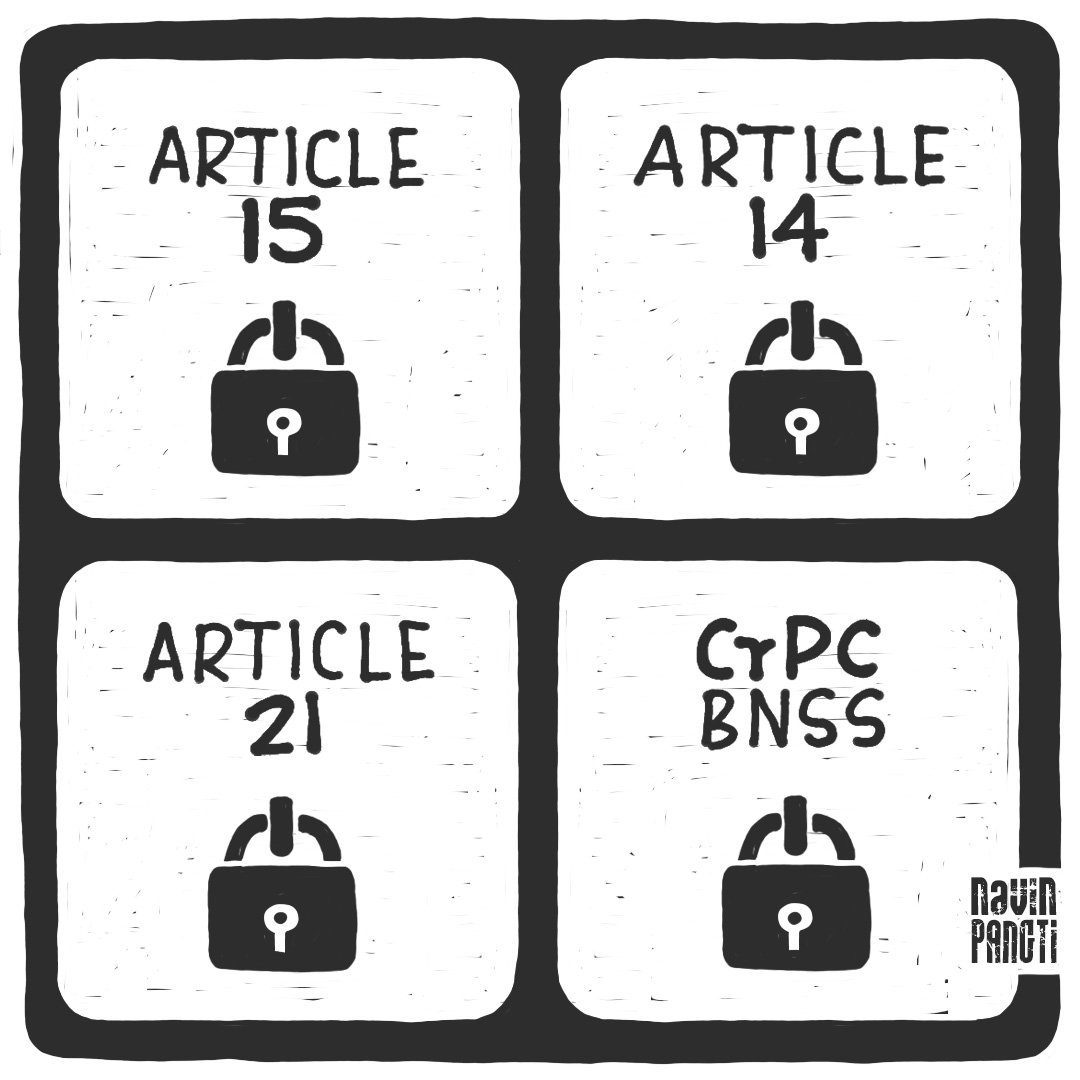Why is the Revenue Police system of Uttarakhand illegal?
On December 30, 2022, the Government of Uttarakhand finally issued a notification (number 575 /xx-6/2022-11(1)2022) approving the transfer to jurisdiction of 1804 villages from revenue police to regular police.
The existence and validity of Revenue Police system is not a matter of opinion but a matter of law. This is an attempt to understand the legal perspectives though a Q&A with Advocate Deepak Joshi.
On January 12, 2018, the High Court bench of Justice Rajiv Sharma and Justice Alok Singh ordered the abolition of a colonial practice called Revenue Police system. The excerpts of the judgment and its context are discussed in the article – I am a second class citizen, legally!
In its judgment, the Hon’ble High Court mentions that this colonial practice breaks multiple provisions of law. To explain the illegality, the court has referred to certain legal terms and legislations. This Q&A with Advocate Deepak Joshi aims to understand the nuances of legal vocabulary, in plain English.

In its judgment the Hon’ble court states – “There is no intelligible differentia so as to distinguish persons i.e. of hilly areas from the rest of the population living in four districts of the State of Uttarakhand, as far as Right to Life, scientific investigation and speedy trials are concerned.”
Why did the court mention right to life with respect to the revenue police system?
Revenue Police system is unique police system in which civil officials of the Revenue Department have powers and functions of Police. It has been observed by the Apex Court and High Court that Revenue Police system is not competent in handling investigation. Right to fair and speedy trial is a fundamental right which cannot be denied to any citizen. It is a matter of life and liberty. And as per Article 21 of the Constitution states – “No person shall be deprived of his life or personal liberty except according to a procedure established by law.” The term ‘Procedure established by law’ refers to events like taking someone in custody or a awarding a prison/death sentence.
In its judgment the Hon’ble court observes – “Dividing states into two parts without any justification is against the rule of law. Rule of law is the basic feature of the Constitution.”
What does one mean by the term rule of law and how does it stand denied?
The term ‘rule of law’ originated in England and was imbibed in the Indian constitution. Simply put, ‘rule of law’ means that no person is above law. Each and every person is subject to the jurisdiction of ordinary courts of law irrespective of their status.
The concept of rule of law further requires that no person should be subject to arbitrary treatment. It ensures that everyone is governed by the law of the land and not by any person, group or ruler. As per Article 13 of the Indian Constitution, even the state cannot enact laws that contradict the rights conferred by the constitution.
Leaving the citizens of a certain region at the mercy of an inadequate archaic policing system which lacks resources, competence and infrastructure to handle crimes can be legally termed as an arbitrary treatment. Such a treatment amounts to denying the rule of law.
What is Cr PC?
Offences are defined and punishment as per the provisions of the Indian Penal Code and other penal enactments such as Arms Act, Narcotic Drugs & Psychotropic Substances Act, Prevention of Corruption Act, Schedule Caste and Schedule Tribes (Prevention of Atrocities) Act, etc.
Merely defining the offences and punishment is not sufficient for implementation of law. There is a requirement for a procedural law which outlines how the offences are to be investigated, inquired into, tried and otherwise dealt with. The Code of Criminal Procedure, commonly known as Cr PC, is the procedural law with respect to crimes and all the offences under the Indian Penal code are to be investigated, inquired into, tried and otherwise dealt with as per the provisions of this code.
In its judgment the Hon’ble court observes – “This Court has come across a number of cases, where the FIR is registered with the Revenue Police and the investigation is carried out by the Patwari and in heinous crimes by the Naib Tehsildar. The practice of matter being registered by the Patwari and investigated by Patwari or Naib Tehsildar is contrary to the provisions of the Code of Criminal Procedure, 1973 and the Uttarakhand Police Act, 2007.”
How does the Revenue Police system acts in contradiction to the provisions of the Cr PC and the Uttarakhand Police Act?
An investigation is the first and the most important aspect of a criminal procedure. The purpose of the investigation is to identify the offender and proceed for trial. Revenue Police system lacks competence, skills, infrastructure, and training to do the critical job of investigation. In this age of science and technology were criminals are getting very tech savvy, an investigating officer of the Revenue Police system, armed with a measurement chain and register, is completely inadequate to undertake such responsibilities whereas the regular police is trained to use modern tools and techniques for conducting investigations, collecting evidences, etc.
Fair investigation comprises of several components which include honesty and competence. Collection of proper evidence is also a component of fair investigation. In appropriate cases, collection of scientific evidence would constitute fair investigation. Inability of a system to investigate and collect evidence is a violation of the provisions of the Cr PC.
Police Act provisions for the training to the officials prior to putting them in the ground for their respective jobs. Ranks and duties are clearly outlined. It ensures that officers conducting investigation have the requisite experience and skills. Investigation of the crime by incompetent agency or person defeats the purpose of justice. That’s where the Revenue Police system violates the provisions of the Police Act.
Under which laws is the access to regular policing mandatory for citizens of the country?
These is no hard coded provision in the law which states that access to the regular policing mandatory for citizens of the country. But the Hon’ble courts have mentioned time and again that fair trail and investigation is a constitutional right. In Babu Bhai versus State of Gujarat (2010), the Supreme Court stated “…Not only fair trial but fair investigation is also part of constitutional rights guaranteed under Articles 20 and 21 of the Constitution of India. Therefore, investigation must be fair, transparent and judicious as it is the minimum requirement of rule of law.”
The courts have already observed the inadequacy of the Revenue Police system to ensure fair trial and investigation. Currently, believe it or not, the regular police system is the only available system which can guarantee quick and fair investigation.
There are simple things that an ordinary hill dweller of Uttarakhand cannot do – He/she cannot call 100. He/she cannot urgently report a matter, anonymously. He/she cannot get immediate redressal.
Which all provisions of law stand broken through these denials?
Technically, Article 14, Article 15, and Article 21 of the constitution of India stand violated. These articles represent three fundamental rights which are guaranteed to very citizen by the constitution of India.
Article 14 states that “The State shall not deny to any person equality before the law or the equal protection of the laws within the territory of India.” Denying provisions of Cr PC amounts to denying the rights enshrined in this article.
Article 15 states that “The State shall not discriminate against any citizen on grounds only of religion, race, caste, sex, place of birth or any of them.” While the whole of India has access to regular police, only the hilly regions of the state of Uttarakhand are selectively denied this access. This denial amounts to discrimination.
Article 21 states that “No person shall be deprived of his life or personal liberty except according to procedure established by law.” Selectively denying the access to fair investigation and trial is equivalent to depriving the people of the hilly regions of their right to life and personal liberty, as if they are second class citizens.
How serious is the violation of constitutional provisions with respect to rights of the citizens?
Fundamental rights are the basic human rights enshrined in the Constitution of India, guaranteed to every citizen, applicable without any discrimination. As already state above, Revenue Police system denies fundamental rights. This is over and above the rights tampered due to injustices that prevail due to an inefficient and inadequate system.
As already mentioned before, fair and competent investigation in a criminal case is the backbone of criminal justice in any society. The Hon’ble Supreme Court of India has many times reiterated the imperative necessity of fair investigation and trial and read it as part and parcel of Article 21 of the Constitution of India.
Another important aspect is quick response and registration of FIR. The Revenue Police system responds too slowly. Due to such delay the evidence may be tampered, destroyed or become useless hence the accused, in spite of being guilty, takes shelter under technicalities of the law leading to acquittal. Even the Supreme Court observed (In Mukesh versus State (NCT of Delhi), 2017) that “Normally, the Court may reject the case of the prosecution in case of inordinate delay in lodging the First Information Report because of the possibility of concoction of evidence by the prosecution.”
An investigating agency cannot be permitted to conduct an investigation in manner that violates various provisions of law. As per the law, where non-interference of the court ultimately results in failure of justice, the court must interfere – Hence this order by the Hon’ble High Court of Uttarakhand.















Wonderful sir. Good going..
thanks